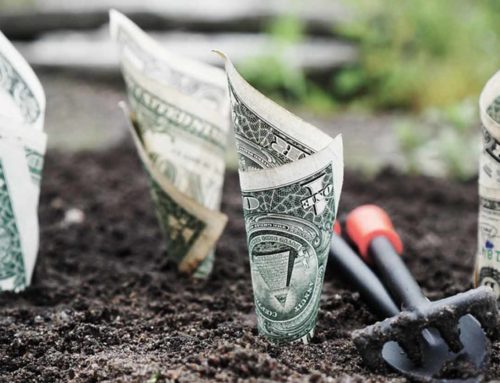By now, many Nebraskans have heard about a troubled corn ethanol plant in Mead, just west of Omaha.
The AltEn, LLC plant was designed to take advantage of federal biofuels subsidies and the Renewable Fuel Standard (RFS) mandate when it reopened in 2015, purporting to help address the looming threat of climate change. Now, it serves as a fitting example of the misguided and wasteful system of federal subsidies and mandates that is making climate change worse.
The plant, currently shuttered by state environmental regulators, has created more problems for local residents and federal taxpayers than it ever solved. Unlike other corn ethanol facilities, AltEn used treated seed as an ethanol feedstock, meaning the corn was coated with pesticides.
One resident in a recent news report said that the AltEn facility’s odor “will burn your nose … It will make your eyes water. It will take your breath away. It will make you cough. It is the worst thing I have ever smelled.”
Problems like these caused state regulators to issue numerous citations and enforcement actions against AltEn, but problems resumed and even got worse.
Due in large part to the ethanol plant’s use of neonic-treated seed, dangerous levels of pesticide chemicals clothianidin, thiamethoxam and imidacloprid have been recorded in the plant’s waste byproduct, which it sold to farmers as “soil conditioner” or left on nearby ground.
High levels of these — and 10 other pesticides — also contaminated the plant’s wastewater lagoons, and some of the water leached into adjacent waterways. This has caused researchers to worry about potential contamination of the Ogallala Aquifer, the lifeblood of water supply for farmers across Nebraska and several other states that are already suffering declining outputs due to excessive pumping and droughts that could become worse as the climate changes.
AltEn’s neonic-treated seed pollution and waste products contributed to bee colony die-offs at a nearby UNL research facility as well, prompting scientific concerns about the danger of the pesticides to our state’s plant and animal life.
Over the last 15 years, federal subsidies and mandates helped make the AltEn plant’s construction feasible for its corporate owners.
Now, as it causes ongoing health problems, contaminated soil and polluted waterways, who ends up footing the bill for its costly problems?
Federal taxpayers — that’s you and me — continued to keep it afloat despite its problems. Are we going to be on hook for the aftermath?
This is what happens when federal subsidies become embedded into an industry’s business model.
Taxpayer subsidies got the AltEn plant off the ground, an all-too-familiar story in the larger ethanol industry itself, which has reaped federal dollars for more than 40 years. Some of these taxpayer subsidies have included a $6 billion-per-year tax credit that ended in 2011, but other ethanol subsidies continue to cost taxpayers.
Case in point — the AltEn facility received $210,000 in COVID-19 relief funds despite its glaring track record of environmental violations.
This story illustrates one piece of a larger picture about negative taxpayer impacts of federal biofuels policy.
To date, most negative impacts have been borne by taxpayers and other industries that use biofuel feedstocks. But our environment has also suffered as millions of acres of grassland, Conservation Reserve Program, wetlands and other carbon-rich land were lost to corn and soybean production after the RFS was expanded by Congress in 2007.
Some negative impacts are indirect, but the AltEn story is one of direct, visible impacts where people suffer while federal taxpayers subsidize special interests.
While the biofuels industry was meant to reduce greenhouse gas emissions and spur local economic development, AltEn’s demise and the plethora of problems the facility caused demonstrate that our nation’s biofuels policy is badly broken. It also spotlights the numerous risks and taxpayer and public health costs that our misguided policies have helped create.
Now more than ever, taxpayer dollars should be spent wisely — not wasted on special interests at the expense of the climate, environment, our health and local communities.











Get Social